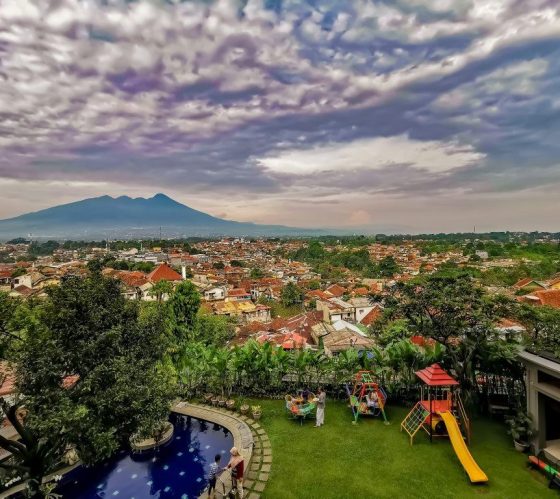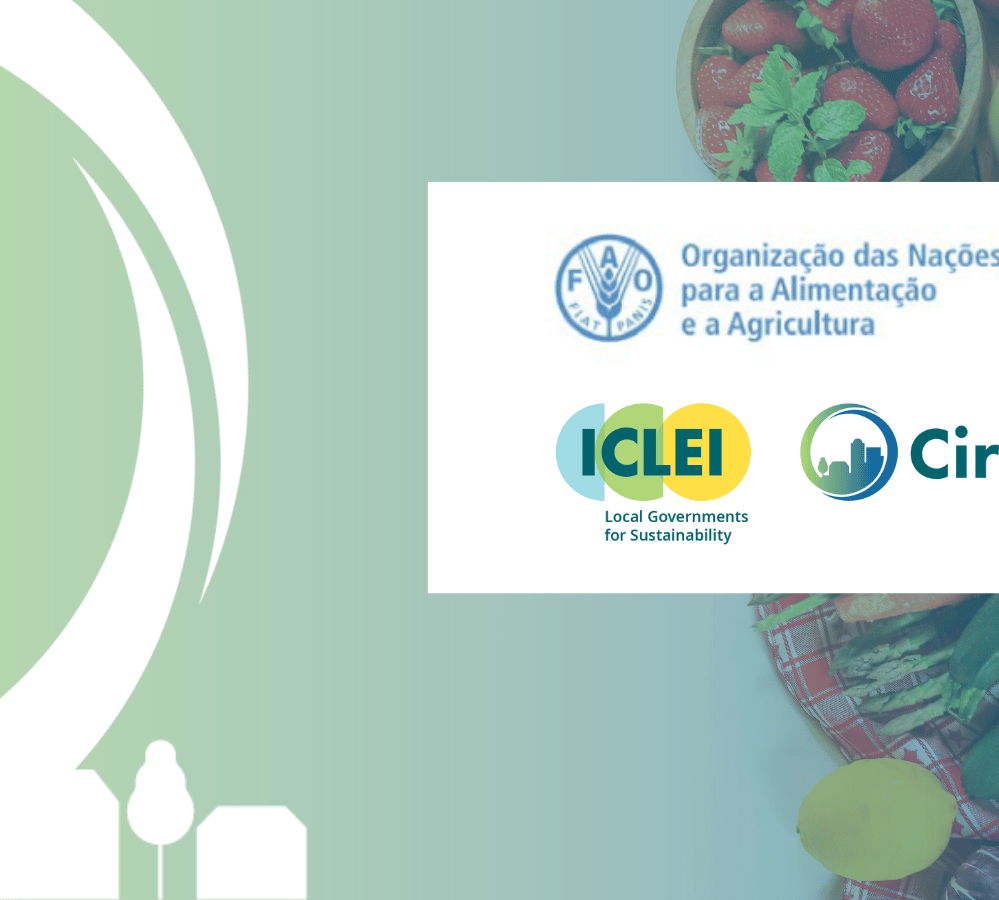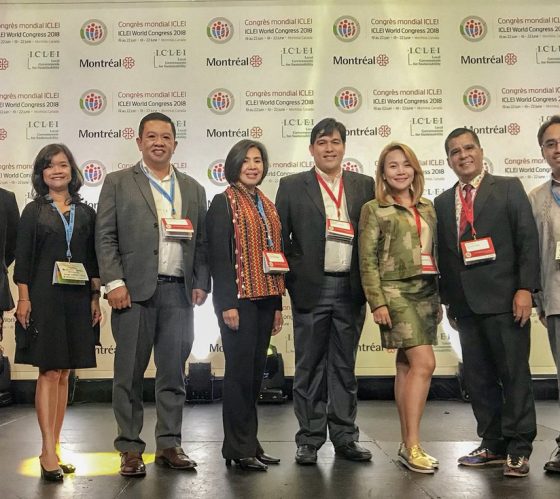In the run-up to the third Intergovernmental Negotiating Committee on Plastic Pollution, which seeks to give life to the UNEA 5.2 Resolution 5/14 entitled “End plastic pollution: Towards an international legally binding instrument”, ICLEI – Local Governments for Sustainability (ICLEI) and United Cities and Local Governments (UCLG), who co-lead the Local Authorities Major Group under the United Nations Environment Programme (UNEP), hosted a Circular City Insights Webinar.
The webinar was hosted in collaboration with partners that include: UNEP, the Quebec Government, World Wide Fund for Nature (WWF), C40 Cities Climate Leadership Group (C40), the Global Cities Hub, and the Global Alliance for Circular Economy and Resource Efficiency.
The aim of the webinar was to raise awareness amongst cities and subnational governments on the process being followed by the INC and progress thus far. Importantly, the Zero Draft providing options for the future Treaty was analyzed, specifically from cities and sub-national perspectives – focusing on implications and opportunities for all levels of government, and exploring how local and subnational governments’ intervention can enhance the process. The webinar provided space for input from city and subnational government leaders that can be carried through into the INC process.
Speaking on the importance of Cities and subnational governments needing to be a key part of the treaty, Jean Lemire, Special Envoy of the Quebec Government for Climate Change and Northern and Arctic issues, called for urgent action with subnational actions, and coordinated implementation with all levels of government.
From an implementation perspective, the City of Paris approaches the issues of plastics pollution with two guiding principles: 1. Reduction: The city intends to ban all unnecessary single-use plastics, and promote reuse where possible; and 2. Recycled plastics are not considered as the ultimate solution, as we can only recycle plastics a limited number of times and then it is either landfilled or incinerated and doesn’t ultimately sort out the problem. This was highlighted by Gregoire Merrheim from Paris’ International Relations Department.
Mayor Araya of San José, Costa Rica, called for collective leadership and the need to seriously address transactional inequalities. This includes a call for decoupling human development from an economy focused solely on the growth and depletion of resources and the social inequalities that accompany it.
Brenda Koekkoek, a Programme Manager at the INC Secretariat, stated that we are currently midway of the negotiation process, with INC-3 taking place in Kenya. There was a good constructive spirit that resulted in resolution 5.14, and they are counting on this spirit to make INC-3 a success.
Charis Hoffmann, Consumer Goods Officer at the ICLEI World Secretariat, analyzed the Zero Draft to give an overview of how the Treaty will affect local and subnational governments. The Treaty foresees the development of national plans against plastic pollution, contributing to nationally determined targets that will feed into global targets. Local and subnational governments will need to be taken into account when developing these national plans. Further, local and subnational government engagement is key to the implementation of actions on reuse systems, waste management, and addressing existing pollution.
The last part of the webinar was a panel discussion moderated by Emeline Pluchon, Senior Advisor from WWF Norway. Speakers in the panel included: Yumi Nishikawa, Plastic-Smart Cities Lead for Asia, WWF; Rodolphe Barbaroux, Sustainable Development Coordinator in the City of Evian; Gary Cullen, Project Manager in the City of Durban (eThekwini Municipality); Gabriel Boichat, Head of the Delegation of the Government of Catalonia to Switzerland; and Annette Synowiec is the Director of Policy, Planning & Outreach at the City of Toronto.
There is a broad range of cities in Asia participating in the Plastic-Smart Cities Programme, and experience lots of challenges. However, these challenges are common across the world. These include rapid and sprawling urbanization; cities lacking basic infrastructure; ever decreasing city funds while facing a growing waste problem; and a lack of incentives.
There needs to be a focused change to the current consumption model. The city of Evian, France is extremely concerned about water quality from natural springs. In July 2019 it was found that Geneva Lake had the same level of plastic pollution as the Mediterranean Sea. Municipalities need to be better supported by national governments to bring about a change in behavior.
Through the pact for circular fashion, the Catalonian government has also been able to promote an EPR narrative. The role of local and regional governments is critical for the successful implementation of the treaty. We need the support of member states that are actually negotiating, some are mentioning local and regional governments, but this language is not finding its way into the treaty.
The City of Toronto’s work on the reduction of single-use products is not only on plastics, they have taken a comprehensive approach and want to change behavior away from consumption of single-use products. A shift from one material to another can come with further complications. By the end of the year, the city will likely have bylaws that will mandate businesses to reduce single-use items.
In terms of expectations for the plastics treaty, the panelists expressed the following views. It is hoped that this treaty brings about real and mandatory changes across global value chains, it must establish global bans and phase-outs, global requirements for product design, and strong implementation support measures including financial support and the alignment of financial flows. There are high expectations that multinational companies will benefit from having a global treaty, as it will make sense for the global supply chain. From a public standpoint, there is not a lot of public trust – there is now an opportunity to enhance transparency that can support behavior change. Municipalities and regional governments must be consulted, as the facilities that are managed by cities are the collection points of most of this waste.
Gary Cullen from the City of Durban (eThekwini Municipality), South Africa, indicated that there is a divide between national activities and local needs. National actions cannot be effective unless they are part of an inclusive implementation strategy which has to happen at the local level. eThekwini Municipality manages an area of 2,600 square kilometers and includes 90 kilometers of coastline; and 18 rivers that enter the Indian Ocean. There is a culture of disposing of waste in the natural environment. When there is a big storm event, all the rubbish flows into the stormwater system into rivers and eventually the ocean. This is a complex issue and requires joint strategizing between national and local levels to address these complexities.
Lastly, Yumi Nishikawa highlighted that WWF will soon be publishing the report “Asia City-Level Interventions: Learnings for the Plastic Pollution Treaty” through its No Plastic in Nature global initiative that began in 2018. To identify the opportunities presented by the global plastic treaty to support city authorities in tackling the plastic pollution crisis, this study analyses city-level interventions from several countries in Asia. The report will be published in December 2023 through WWF media channels and the WWF Plastic Smart Cities website.
The recording of the webinar can be viewed in English, Spanish and Portuguese.
For more information on this process, please sign up to the ICLEI Circulars Newsletter





